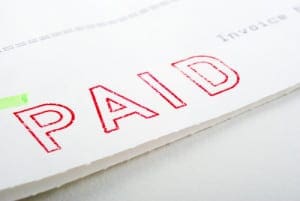
Best Practices for Effective Debt Collection
Effective debt collection is a crucial aspect of maintaining a healthy cash flow for businesses. It involves more than just reminding customers of their dues; it requires a strategic, respectful approach that balances firmness with professionalism. This blog aims to guide business owners and collection agents on the best practices for collecting debts, ensuring that the process is efficient, ethical, and legally compliant.
Understanding the Debtor’s Perspective
Empathy and understanding are crucial when dealing with debtors. Recognizing the various circumstances that might lead to unpaid debts can significantly inform the approach to debt collection. By understanding the debtor’s perspective, businesses can adopt a more effective, humane approach to debt recovery. The first step in effective debt collection is understanding the debtor’s situation. Empathy can go a long way in establishing a cooperative relationship.
- Open Communication: Initiate the conversation by acknowledging the debtor’s situation and showing a willingness to listen. This can create a more receptive environment for negotiation.
- Clear and Respectful Communication: Always communicate clearly and respectfully. Avoid using jargon or complex language that might confuse the debtor.
Acknowledging the Varied Causes of Debt
People fall into debt for numerous reasons, some within their control and others due to unforeseen circumstances.
- Financial Hardship: Many debtors encounter unexpected financial hardships, such as job loss, medical emergencies, or significant life changes that impact their ability to pay.
- Mismanagement of Finances: In some cases, debtors may struggle with managing their finances effectively. This could be due to a lack of financial literacy or planning.
- Business Failures: For corporate debts, financial struggles might be due to business downturns, loss of key clients, or failed ventures.
The Emotional and Psychological Impact of Debt
Debt can have profound emotional and psychological effects on individuals and business owners.
- Stress and Anxiety: Carrying debt can lead to significant stress and anxiety, particularly when debtors feel harassed or unable to find a way out of their situation.
- Embarrassment and Shame: Many debtors may feel a sense of shame or embarrassment about their debts, which can make them reluctant to communicate openly about their situation.
The Importance of Communication in Understanding
Effective communication is key to understanding the debtor’s situation. This goes beyond mere transactional exchanges and involves active listening and empathy.
- Creating a Dialogue: Encourage open dialogue where debtors feel safe to express their current financial situation without judgment.
- Active Listening: Practicing active listening can help in understanding the debtor’s predicament, thereby guiding the approach to proposing viable solutions.
Offering Support and Solutions
Understanding the debtor’s perspective allows for a more compassionate approach to debt collection.
- Supportive Solutions: Instead of exerting undue pressure, offer support and practical solutions that can help debtors fulfill their obligations without exacerbating their financial strain.
- Negotiation and Flexibility: Show willingness to negotiate payment terms that are more manageable for the debtor, such as extended payment plans or reduced settlement amounts.

Maintaining Respect and Dignity
Regardless of the reasons for their debt, treating debtors with respect and dignity is paramount.
- Respectful Interactions: Every interaction should uphold the debtor’s dignity, avoiding any actions or language that might be demeaning or threatening.
- Understanding Leads to Cooperation: A debtor who feels understood and respected is more likely to cooperate and communicate openly about payment possibilities.
Understanding the debtor’s perspective is a critical component of effective debt collection. Recognizing the various reasons that lead to debt, the emotional toll it can take, and the importance of respectful, empathetic communication can transform the debt collection process. It not only facilitates more humane and effective debt recovery but also helps maintain the business’s reputation as fair and ethical. By approaching debt collection with empathy and understanding, businesses can foster a more positive, cooperative environment that benefits all parties involved.
Developing a Structured Collection Strategy
A structured collection strategy is vital for businesses managing overdue accounts. It involves a systematic approach that encompasses clear communication, consistency, and an understanding of legal and ethical boundaries. Integrating the services of a collection agency can be a crucial component of this strategy, providing expertise and efficiency in recovering debts.
- Clear Payment Terms: Ensure that payment terms are clearly stated from the outset of any credit arrangement. This sets clear expectations for both parties.
- Regular Follow-Ups: Implement a system for regular follow-ups on outstanding debts. Consistency is key in reminding debtors of their obligations.
Crafting a Clear Collection Policy
Having a clearly defined collection policy is the foundation of effective debt recovery. This policy should outline the procedures for managing overdue accounts, including timelines for follow-up, communication methods, and escalation processes.
- Transparency with Customers: Ensure that the terms regarding payment deadlines and consequences of non-payment are clear to customers from the outset.
- Consistent Application: Apply the collection policy consistently across all accounts to maintain fairness and avoid potential legal issues.
Early Intervention
Timely action is often key in successful debt collection. The longer a debt remains unpaid, the harder it can be to collect.
- Prompt Follow-Up: Initiate contact as soon as an account becomes overdue. Early communication can often resolve issues before they escalate.
- Regular Reminders: Send reminders and follow-up notices at regular intervals. Consistent communication keeps the debt at the forefront of the debtor’s mind and demonstrates the seriousness with which you view the debt.
Hiring a Collection Agency
When internal efforts do not yield results, enlisting the services of a collection agency can be an effective next step.
- Expertise and Resources: Collection agencies bring specialized knowledge and resources to the debt collection process, increasing the likelihood of successful debt recovery.
- Legal Compliance: They are well-versed in the laws governing debt collection, ensuring that efforts are compliant with regulations such as the Fair Debt Collection Practices Act (FDCPA).
Best Practices for Business Owners
Incorporating best practices into your collection strategy can enhance its effectiveness while maintaining ethical standards.
- Documenting Communications: Keep detailed records of all communications with debtors. This documentation can be crucial in case of disputes or legal proceedings.
- Professionalism and Respect: Always maintain a professional and respectful tone in all communications. Aggressive or harassing tactics can damage your business’s reputation and potentially lead to legal issues.
- Offering Payment Solutions: Be open to negotiating payment plans or settlements. This flexibility can often lead to a quicker resolution and is more likely to result in some form of repayment.
Utilizing Technology
Leveraging technology can streamline the debt collection process, making it more efficient and less intrusive.
- Automated Systems: Use automated systems for tracking overdue accounts, sending reminders, and recording communications.
- Data Analysis: Analyze data from your collection efforts to identify trends and areas for improvement. This analysis can help refine your strategy for better results.


Developing a structured collection strategy is essential for effective debt management. By setting clear policies, intervening early, maintaining professionalism, and possibly incorporating the expertise of a collection agency, businesses can enhance their chances of recovering debts. Remember, a successful collection strategy is not only about recovering funds; it’s also about preserving relationships and the reputation of your business. Employing a balanced and fair approach to debt collection can achieve these objectives and contribute to the overall financial health of your business.
Negotiating Payment Plans
Negotiating payment plans is a critical aspect of debt collection, offering a pragmatic approach to recover debts while considering the debtor’s financial situation. When managed effectively, either by the business or through a debt collection agency, it can lead to successful debt resolution. This approach involves setting clear expectations with debtors and offering flexible solutions that are feasible for both parties.
Role of Debt Collection Agencies in Negotiation
Debt collection agencies bring expertise and experience in negotiating payment plans, often achieving outcomes that might be challenging for businesses to secure on their own.
- Professional Negotiators: Collection agencies have trained professionals who understand how to negotiate effectively while remaining within legal and ethical boundaries.
- Objective Assessment: Agencies can objectively assess the debtor’s financial situation and propose realistic payment plans, reducing the emotional or personal biases that might affect direct negotiations between the business and the debtor.
Setting Expectations with Debtors
Setting clear expectations is fundamental in negotiating payment plans. It involves a transparent discussion about the debt, the need for repayment, and the consequences of non-payment.
- Clarity and Transparency: Be clear about the total amount owed and how the payment plan would work. Transparency builds trust and helps in securing the debtor’s commitment to the plan.
- Feasibility and Flexibility: Payment plans should be feasible, considering the debtor’s ability to pay. Offer flexible terms where necessary, such as extended timelines or adjusted payment amounts, to increase the likelihood of compliance.
Structuring the Payment Plan
A well-structured payment plan is key to successful debt recovery. It should outline specific terms that are agreed upon by both parties.
- Defining Terms: Clearly define the payment amounts, due dates, and duration of the plan. Ensure these terms are understood and agreed upon by the debtor.
- Documenting the Agreement: Formalize the payment plan in writing. This documentation should be signed by both parties, serving as a formal agreement that outlines the expectations and responsibilities.
Monitoring and Follow-Up
Once a payment plan is in place, regular monitoring and follow-up are essential to ensure compliance.
- Regular Check-Ins: Establish a schedule for regular check-ins to review the debtor’s adherence to the payment plan.
- Adjustments if Needed: Be prepared to make adjustments if the debtor’s circumstances change. Flexibility can help maintain the relationship and ensure continued payments under the new terms.
Communication and Empathy
Effective communication and a degree of empathy are important throughout the negotiation process.
- Understanding and Patience: Demonstrating understanding and patience can encourage debtors to be more open and cooperative.
- Clear and Consistent Communication: Maintain clear and consistent communication throughout the duration of the payment plan. This helps in keeping the debtor engaged and committed to fulfilling their obligations.
Negotiating payment plans is a delicate balance of firmness, understanding, and practicality. Whether handled in-house or through a debt collection agency, the focus should be on creating a plan that is realistic and sustainable for the debtor while also achieving the goal of debt recovery. By setting clear expectations, structuring feasible plans, and maintaining open communication, businesses can effectively navigate the complexities of debt collection, leading to mutually beneficial outcomes.


Maintaining Professionalism and Ethical Conduct
Maintaining a high standard of professionalism and ethics is vital in debt collection, not only for legal compliance but also for preserving your business’s reputation.
- Adherence to Laws and Regulations: Be well-versed with the Fair Debt Collection Practices Act (FDCPA) and other relevant laws to ensure compliance.
- Avoiding Aggressive Tactics: Employ assertive yet respectful collection tactics. Avoid aggression or harassment, which can lead to legal complications and harm your business’s reputation.
Leveraging Technology in Debt Collection
Technology can streamline the debt collection process, making it more efficient and less intrusive.
- Automated Reminders: Use automated systems for sending reminders and follow-up notices. This can reduce the manual effort involved and provide a non-intrusive way to remind debtors of their dues.
- Record Keeping: Maintain detailed records of all communications and transactions. This is crucial for legal compliance and useful in case of disputes.
Training and Development for Collection Staff
If you have a team handling collections, ensuring they are well-trained and informed about best practices is crucial.
- Regular Training: Provide regular training to your team on effective communication techniques, negotiation skills, and legal compliance.
- Role-playing and Scenarios: Use role-playing exercises to prepare your team for various debtor interactions, helping them handle different situations more effectively.
Effective debt collection is a nuanced process that requires a balance of firmness, empathy, and professionalism. By understanding debtors, employing structured and flexible collection strategies, maintaining ethical conduct, leveraging technology, and ensuring your team is well-trained, you can improve your debt collection outcomes. Remember, successful debt collection is not just about recovering dues; it’s also about preserving relationships and your business’s reputation in the long run.
In-House Debt Collection vs. Hiring a Collections Agency
When it comes to debt collection, businesses often face the decision of managing the process in-house or hiring a professional collections agency. Each option has its advantages and challenges, and the choice depends on various factors including the business’s resources, the volume of debts, and the nature of the debtor relationships.
In-House Debt Collection
In-house debt collection involves the business’s staff managing the debt recovery process. This approach is more hands-on and allows for direct control over the collection process.
- Direct Control and Relationship Management: Managing debt collection in-house allows businesses to maintain direct relationships with their debtors. This can be important for businesses that rely on ongoing relationships with their customers.
- Cost Considerations: In-house collection can potentially save on the costs associated with hiring an external agency. However, these savings must be weighed against the staff time and resources spent on collection efforts.
- Understanding of Business-Specific Practices: Internal staff may have a better understanding of business-specific practices and policies, which can be advantageous in tailoring the collection approach to each debtor’s situation.



Hiring a Collections Agency
Hiring a collections agency provides professional expertise in debt recovery and can often lead to more effective collection outcomes.
- Expertise and Experience: Collections agencies specialize in debt recovery and have the expertise and strategies to effectively collect debts. Their experience can be particularly valuable for difficult cases.
- Legal Compliance: Collections agencies are knowledgeable about the laws and regulations governing debt collection, reducing the risk of legal violations that could arise from in-house collection efforts.
- Resource Allocation: Outsourcing debt collection frees up internal resources, allowing staff to focus on their core duties rather than the time-consuming process of collecting debts.
Considerations for Choosing Between In-House and Agency Collection
- Size and Nature of Debts: The decision may depend on the size and nature of the outstanding debts. Small or few accounts might be manageable in-house, but a large volume of high-value debts might be better handled by a professional agency.
- Cost-Benefit Analysis: Consider the costs associated with each option, including staff time and resources for in-house collection and the fees charged by collection agencies.
- Impact on Customer Relationships: Assess how debt collection efforts may impact ongoing customer relationships. In some cases, the direct approach of in-house collection might preserve relationships, while in others, the professional distance of an agency might be beneficial.
- Success Rates and Efficiency: Evaluate the success rates and efficiency of in-house collection efforts compared to those achieved by professional agencies. This assessment should factor in the recovery rate and the time taken to collect debts.
Deciding between in-house debt collection and hiring a collections agency requires a careful assessment of the business’s specific needs, resources, and the nature of its debtor relationships. While in-house collection offers direct control and can be cost-effective for some businesses, professional agencies bring expertise, legal compliance, and potentially higher success rates. Ultimately, the choice should align with the business’s overall operational strategy and goals, ensuring that the approach to debt collection is both efficient and effective.
Navigating the complexities of debt collection can be a challenging aspect of running a business. Whether you’re considering enhancing your in-house collection efforts or exploring the benefits of a professional collections agency, Price it Here is here to assist you with tailored solutions that suit your specific needs.
